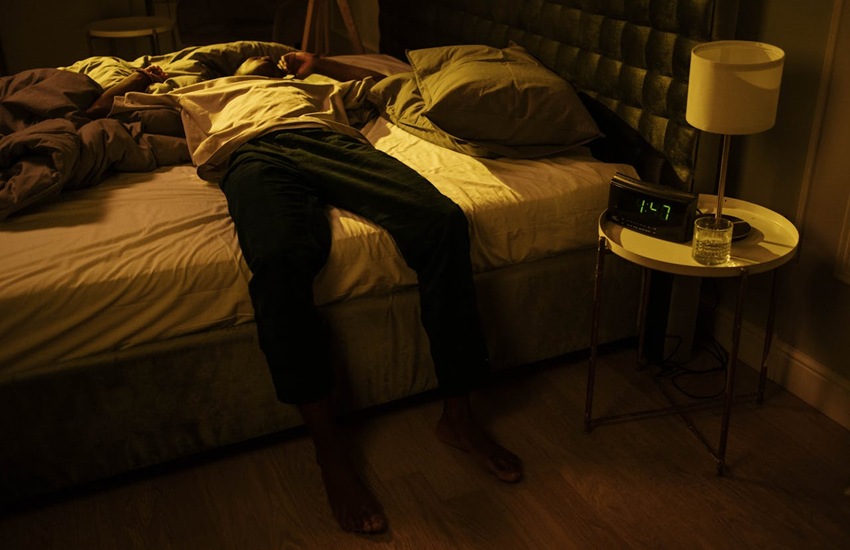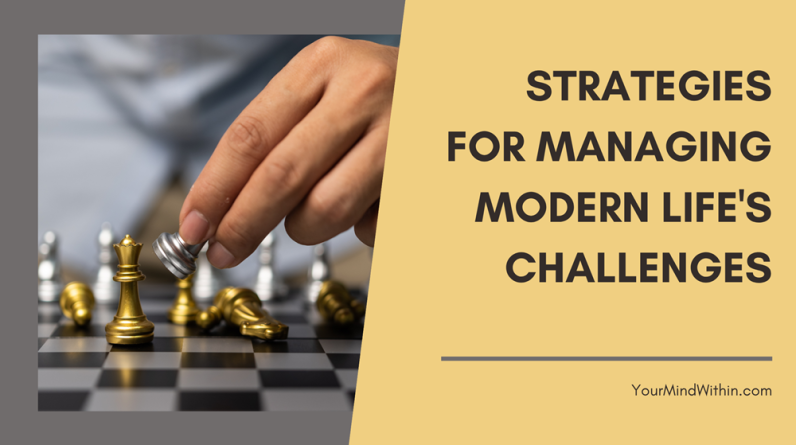
The National Council on Aging estimates that approximately “…30% of adults have symptoms of insomnia.” As the National Heart, Lung, and Blood Institute explains, individuals with insomnia “…may have trouble falling asleep, staying asleep, or getting good quality sleep.”
While some insomnia may be related to temporary changes in schedule, such as taking a red eye home from vacation, long-term insomnia (insomnia that occurs at least three times a week for a minimum of three months), can take a detrimental toll on your mental health.
In fact, as the National Heart, Lung, and Blood Institute points out, “Chronic insomnia raises your risk of high blood pressure, coronary heart disease, diabetes, and cancer.”
Physical ailments aside, insomnia negatively affects your mental health, too. This blog will explore the connection between insomnia and mental health, so you can recognize the signs of when it’s time to seek help.
Which Came First: The Insomnia Or The Mental Health Condition?
Unfortunately, there is no direct answer to this question. Rather, the answer is that insomnia and mental health conditions operate cyclically.
Per the Columbia University Department of Psychiatry, though “…insomnia can be a symptom of psychiatric disorders, like anxiety and depression, it is now recognized that sleep problems can also contribute to the onset and worsening of different mental health problems, including depression, anxiety, and even suicidal ideation.”
Though insomnia has many causes, stress about money, family, and other lifestyle issues play a big factor in its existence.
Furthermore, ruminating on these stressful thoughts, especially at night without distractions, increases anxiety, further feeding into generalized anxiety disorders and depression that make it impossible to fall asleep.
You might even begin to worry about what will happen if you can’t fall asleep, trapping you in what seems to be a never ending cycle!
This data highlights the importance of maintaining your stress and anxiety levels, especially while practicing good sleep hygiene to prioritize restful sleep.
Insomnia Caused By Common Underlying Mental Health Struggles
As mentioned above, insomnia can be caused by stress. However, sometimes that stress may be the result of an underlying mental health struggle.
Here are two of the most common mental health struggles that can lead to or worsen insomnia:
Grief
Death may be a natural part of life, but it’s not without its consequences for those left behind. For those dealing with grief, insomnia is part of the package.
In fact, according to a study about bereaved college students, published by the Sleep Foundation, “More than 1 in 5 of the bereaved experienced insomnia, compared with only 1 in 6 of the non-grieving students.”
While college students represent a small segment of people, the findings highlight the impact grief can have on a person’s sleep pattern. This is especially true if the individual with insomnia used to share a bed with the deceased.
This new nighttime routine can take time to get adjusted to, and the constant visual of the loss perpetuates a cycle of grief and anxiety.
Posttraumatic Stress Disorder
Like grief, posttraumatic stress disorder (PTSD) can lead to insomnia, while also feeding into it and exacerbating its symptoms.
In an earnest effort to function during the day, PTSD sufferers may try and block out their thoughts. However, they tend to manifest significantly at night causing nightmares, flashbacks, and restless legs.
All of these make it hard to stay asleep, let alone relax enough to wind down at the end of the night.
Per data from the U.S. Department of Veterans Affairs, “Insomnia is reported to occur in 90-100% of Vietnam era Veterans with PTSD.”
How Insomnia Can Affect Your Mental Health
We all need to get restful sleep to function. Waking up in the middle of the night due to insomnia can take a significant toll on your mental health, including the following side effects:
Impaired Function
When we sleep, our bodies go into repair mode. This includes brain function. At night, our brains are supposed to process information from the day. In turn, this information processing helps you be creative and make decisions when you’re awake.
Unfortunately, if you’re not getting enough restful sleep, your brain isn’t processing information the way it should. So, if you’ve ever had difficulty making decisions the day after a bad night of sleep, this is why.
Irritability
Lack of sleep caused by insomnia can also negatively impair your mood, causing you to feel irritable the following day.
While experiencing a little irritability now and again is normal, it can still ruin your day and your ability to cope with change.
Furthermore, it can make you lash out at those you love and make tasks you usually enjoy challenging and bothersome.
Simply put, irritability creates bigger problems in your life, including those that are unnecessary.
If you struggle with anxiety, depression, PTSD, or are living with grief, they can all have a negative effect on your ability to fall and stay asleep.
Understanding who is at risk of having insomnia can motivate you to take the next steps in getting help and the restful, quality sleep you deserve.








